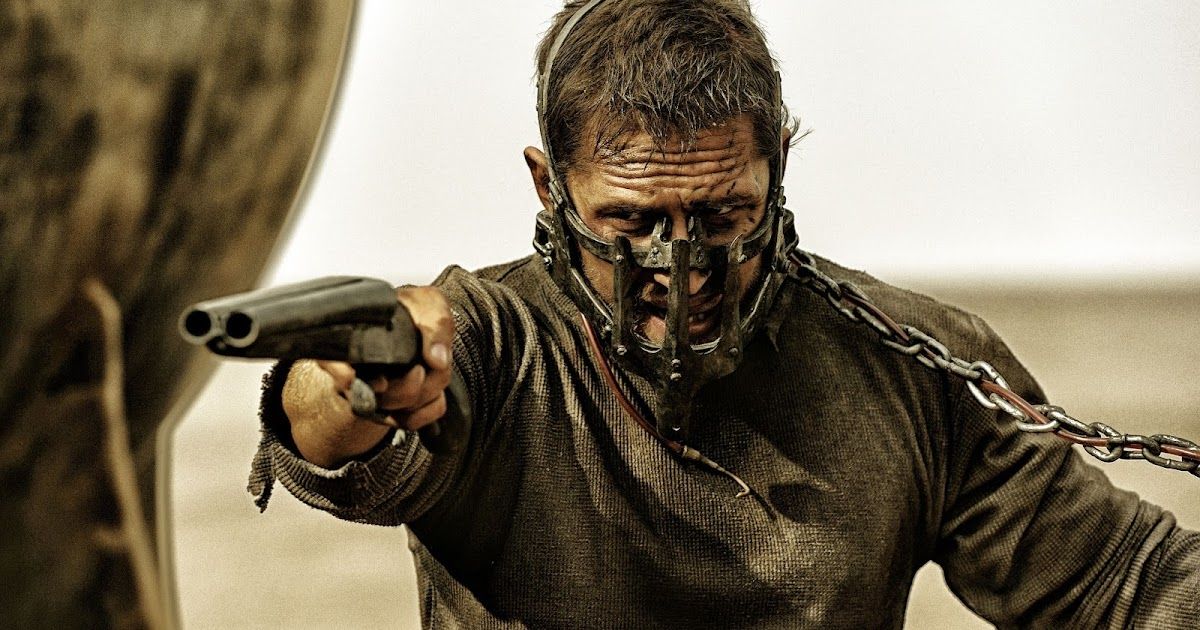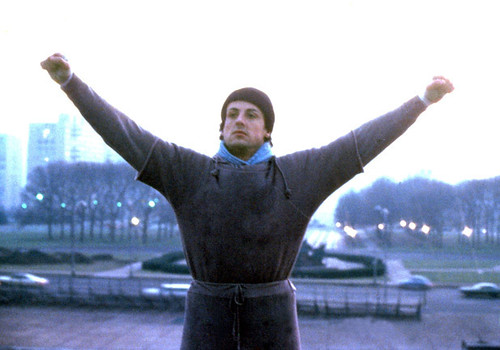
The “Rocky” franchise, a true titan of cinematic storytelling, has etched its way into the hearts of millions since its debut in 1976. It’s a saga that transcends mere boxing, exploring themes of perseverance, loyalty, and the relentless pursuit of one’s dreams against all odds. We’ve journeyed with Rocky Balboa from a gritty club fighter in Philadelphia to a global heavyweight champion, and through every punch, every triumph, and every setback, a remarkable ensemble of characters has been right there with him. These were the opponents, the mentors, the loved ones, and even the colorful commentators who collectively wove the rich tapestry of Rocky’s world.
Behind these unforgettable roles were equally unforgettable performers. Many of them brought a profound depth and authenticity to their characters, often drawing from their own experiences or leaving an indelible mark that extended far beyond the silver screen. As the years have passed, sadly, some of these talented individuals, who helped make the “Rocky” movies the enduring classics they are today, are no longer with us. Their contributions, however, remain a vibrant part of cinema history, continuing to inspire and entertain new generations of fans.
Join us as we take a poignant look back, remembering some of the most iconic performers from the “Rocky” franchise who have sadly left the ring of life. We’ll explore their pivotal roles, fascinating backstories, and the lasting legacies they’ve left behind, ensuring their spirit continues to fight on in the hearts of “Rocky” enthusiasts worldwide.
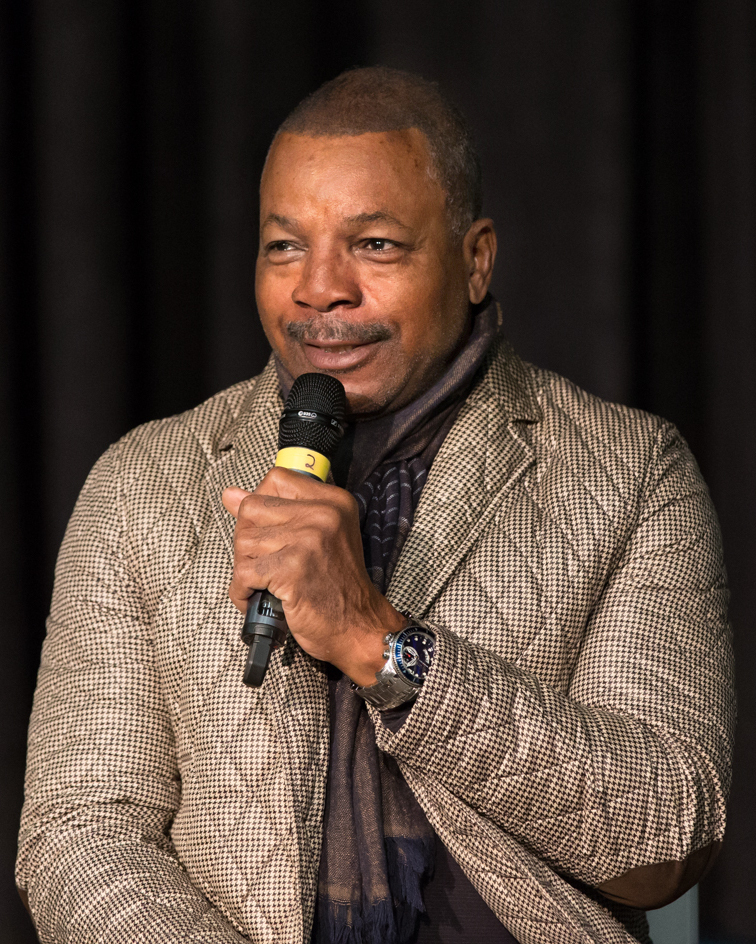
1. **Carl Weathers (Apollo Creed)**
Carl Weathers didn’t just play Apollo Creed; he embodied the very essence of a charismatic, formidable, and utterly legendary heavyweight champion. From the moment he burst onto the screen in 1976, Weathers brought a dazzling athleticism and a captivating swagger to Apollo, transforming him from Rocky’s formidable rival into arguably one of the most iconic characters in cinematic history. It’s fascinating to consider how Sylvester Stallone based the original “Rocky” on the 1975 fight between Chuck Wepner and Muhammad Ali, and while Rocky himself took a different path, there was no mistaking Apollo Creed’s homage to “The Greatest” himself.
Weathers possessed everything that made Ali legendary: the striking handsomeness, a powerful physique honed by his background as a professional football player, and an undeniable gift of gab. Remember that classic line, “Be a thinker, not a stinker,” early in the first film? That was pure Apollo. Weathers reprised his role in three sequels – “Rocky II,” “Rocky III,” and the emotionally charged “Rocky IV” – continually evolving Apollo’s character from a flashy champion to a noble mentor and, ultimately, a tragic hero. Even after his character’s untimely death in the ring against Ivan Drago, Apollo’s legacy profoundly shaped the franchise, leading directly to the “Creed” sequel trilogy, which follows his grown son, Adonis, as he grapples with living up to his iconic father.
Beyond the “Rocky” universe, Carl Weathers was a veritable fixture in Hollywood for decades, showcasing his incredible versatility and range. He starred in beloved 1980s action classics like “Predator” and “Action Jackson,” cementing his status as a bona fide action star. But he wasn’t afraid to poke fun at his macho persona, delivering hilarious performances in comedies such as “Happy Gilmore,” “Arrested Development,” and even lending his voice to “Toy Story 4.” His career took a fascinating turn in the 1990s when he stepped behind the camera, building an impressive resume as a television director.
One of his final and most acclaimed roles was in the Disney+ hit “The Mandalorian,” where he not only had an Emmy-nominated supporting role but also directed two episodes, proving his artistic depth right to the end. Sadly, Carl Weathers passed away in his sleep on February 1, 2024, at the age of 76, due to atherosclerotic cardiovascular disease. His death left a profound void in Hollywood and in the hearts of fans, but his vibrant portrayal of Apollo Creed and his extensive body of work will forever be celebrated.
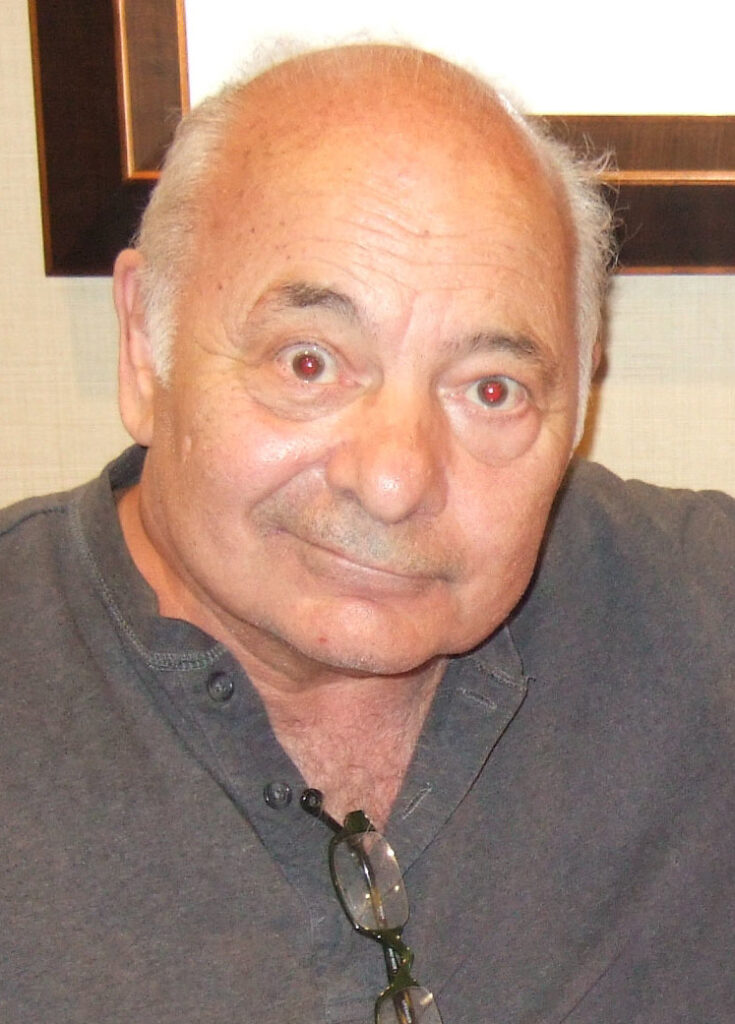
2. **Burt Young (Paulie Pennino)**
Burt Young delivered a performance that made Paulie Pennino, Adrian’s brother and Rocky’s loyal, albeit often difficult, best friend, one of the most beloved and complex characters in the entire “Rocky” saga. Young appeared in all five of the original “Rocky” films, as well as the 2006 legacy sequel, “Rocky Balboa,” making him a constant, gruff, and deeply human presence in Rocky’s life. Paulie was never the easiest guy to be around; he was flawed, often complaining, and prone to bad decisions, but beneath that tough exterior lay a fierce, if sometimes misguided, loyalty to his sister and to Rocky.
It’s a testament to Young’s acting prowess that he made Paulie so relatable and real. According to an anecdote reprinted by The Hollywood Reporter, Sylvester Stallone personally sought out Young for the role, recognizing the authentic grit he would bring. Young, a one-time real-life boxer himself, was instantly captivated by Stallone’s script, famously stating, “I thought the script had the cleanest street prose I’d ever read.” He admired Stallone, calling him “not only a workaholic, he’s a genius who is always looking three years ahead. He has a real eyeball for what’s going on in the world.” This mutual respect undoubtedly contributed to the undeniable chemistry between Rocky and Paulie on screen.
Young’s incredible work on “Rocky” didn’t go unnoticed by the industry, earning him a prestigious best actor in a supporting role nomination at the 1977 Academy Awards. While Paulie Pennino became his most memorable role, Young had a long and distinguished career as one of Hollywood’s most recognizable character actors of the 1970s and beyond. He graced the screens in other iconic films such as “Chinatown” and Sergio Leone’s “Once Upon a Time in America,” in addition to countless television parts, showcasing his ability to inhabit a wide range of complex characters.
Burt Young passed away on October 8, 2023, at the age of 83, from cardiac arrest. His departure marked the loss of a true Hollywood veteran and a foundational piece of the “Rocky” universe. Fans will forever cherish his portrayal of Paulie, a character who, despite his imperfections, was unequivocally family, reminding us all that even the most difficult relationships can be built on a bedrock of love and enduring loyalty.
3. **Burgess Meredith (Mickey Goldmill)**
When you think of a grizzled, no-nonsense boxing trainer with a heart of gold, one image immediately springs to mind: Burgess Meredith as Mickey Goldmill. Meredith delivered an absolutely iconic performance as Rocky’s cantankerous but profoundly caring trainer, becoming the moral and strategic compass for the Italian Stallion. He appeared in “Rocky,” “Rocky II,” and “Rocky III,” with his character’s memorable and heartbreaking death during the events of the third film leaving a lasting impact on Rocky and the audience alike.
Even after his character’s demise, Meredith’s presence was so vital that he made a powerful flashback appearance in “Rocky V” in 1990, a testament to the enduring power of Mickey’s mentorship. Meredith was already a celebrated veteran actor when he joined the “Rocky” cast in 1976, well into his 60s during the filming of the first movie. His career dated back to Hollywood’s Golden Age, giving him a gravitas and lived-in quality that perfectly suited Mickey’s wise, battle-worn persona.
With an astounding 182 acting credits to his name, Meredith’s career was a masterclass in longevity and versatility. While Mickey is a fan-favorite, many will also remember him vividly as the infamous villain, The Penguin, in the delightfully campy 1966 “Batman” TV series, where he consistently stole scenes from Adam West’s Caped Crusader. His talent was recognized with not one, but two Academy Award nominations over his illustrious career, including one for Best Actor in a Supporting Role for his unforgettable work in “Rocky.” Needless to say, Burgess Meredith was an undisputed legend in the entertainment industry.
Sylvester Stallone, among many others, openly expressed his deep admiration and love for his costar, even long after Meredith’s passing. In 2017, Stallone shared a touching photo of himself with Meredith on Facebook, accompanied by the heartfelt message, “I love this guy and miss him very much.” Meredith passed away on September 9, 1997, at the age of 89, due to complications from melanoma and Alzheimer’s disease. His legacy as Mickey Goldmill, the tough-love trainer who believed in Rocky when no one else would, continues to inspire and resonate with fans across generations.

4. **Tony Burton (Tony “Duke” Evers)**
Tony Burton brought a powerful and authentic presence to the “Rocky” franchise as Tony “Duke” Evers, a character whose journey mirrored the shifting dynamics of Rocky’s career. Burton’s Duke first appeared as Apollo Creed’s rough-and-tough trainer in the original “Rocky,” helping prepare the champion for his iconic heavyweight battle against the underdog Rocky Balboa. He reprised his role in subsequent films, including “Rocky II” for the highly anticipated rematch, and later evolved into Rocky’s trusted trainer himself in “Rocky III,” “Rocky IV,” “Rocky V,” and “Rocky Balboa.” Duke was a constant, steadfast presence, evolving from a rival’s cornerman to one of Rocky’s most loyal and essential allies.
What made Burton’s portrayal so convincing was his own background as a real-life boxer. Before stepping into acting, Burton was a formidable pugilist himself, famously winning the Flint Golden Gloves title in both 1955 and 1957. This personal experience lent an undeniable authenticity and gravitas to his character, making Duke’s ringside advice and unwavering support feel incredibly genuine. His deep understanding of the boxing world enriched every scene he was in, giving audiences a true sense of the sport’s demanding nature.
Even in the “Creed” films, Duke’s legacy lives on, illustrating the profound impact of Tony Burton’s character. In the first “Creed” film, which Burton was reportedly unable to see due to health issues, the character of Duke’s son, Tony “Little Duke” Evers, is introduced, played by actor Wood Harris. Little Duke takes on the role of trainer at Apollo’s Los Angeles-based boxing gym and becomes a central figure in “Creed II,” serving as Adonis’ full-time trainer alongside Rocky through both of his grueling fights against Viktor Drago. This lineage ensures that the “Duke” character’s wisdom and expertise continue to guide the next generation of champions.
Tony Burton passed away on February 25, 2016, at the age of 78, from complications from pneumonia. His death was met with sadness and tributes from his “Rocky” family. Sylvester Stallone posted a touching photo of them together on set on Instagram, while Carl Weathers took to Twitter, noting that it was “sad news” and that Burton’s “intensity and talent helped make the Rocky movies successful.” His enduring portrayal of Duke Evers remains a cornerstone of the franchise, a testament to his talent and the genuine spirit he brought to the screen.

5. **Joe Spinell (Gazzo)**
Before Rocky Balboa became the world-famous heavyweight champion, he was a struggling young man in Philadelphia, trying to make ends meet through various sketchy jobs. One such occupation found him working for Joe Spinell’s character, Tony Gazzo, a local loan shark. Spinell brought Gazzo to life with a compelling blend of menace and an unexpected undercurrent of concern for Rocky, making him a complex figure who defied simple categorization. We first meet Gazzo in the original “Rocky” after Rocky lets a debtor off easy, leading to a memorable confrontation where Gazzo, though tough, subtly tries to teach Rocky the ropes of their illicit business, highlighting his peculiar mentorship.
Spinell reprised his role in “Rocky II,” where Gazzo attempts to rope the newly famous Rocky into investing in real estate, an offer Rocky wisely refuses, instead passing the opportunity to Paulie. Gazzo’s interactions with Rocky were always fascinating; he was a low-life criminal, no doubt, but there was a distinct sense that he genuinely cared for Rocky, even going so far as to loan him money to take Adrian out on a date – a surprisingly tender gesture from a loan shark. This nuanced portrayal added significant depth to Rocky’s early life, painting a vivid picture of the world he was trying to escape.
The fate of Gazzo after “Rocky II” is never explicitly stated within the films themselves, leaving his storyline somewhat open-ended. However, the novelization of “Rocky IV” offers a somber detail, noting that Gazzo is tragically killed at some point before the events of that film, adding a quiet, reflective layer to the franchise’s ongoing narrative. Joe Spinell himself was a prolific character actor with a knack for playing memorable, often gritty roles in some truly iconic films of the 1970s and 1980s.
His impressive filmography includes unforgettable turns in Francis Ford Coppola’s masterpieces, “The Godfather” and “The Godfather: Part II,” where he held his own among legendary casts. He also appeared in Martin Scorsese’s “Taxi Driver,” further showcasing his talent for inhabiting dark and complex characters. Spinell even carved out a niche in the horror genre, starring in the notorious 1980s slasher film, “Maniac.” Sadly, Joe Spinell passed away on January 13, 1989, at the age of 52, from a heart attack, leaving behind a legacy of compelling performances that brought a unique flavor to every project he touched, including his unforgettable run as Gazzo in the “Rocky” films.

6. **Thayer David (Jergens)**
While perhaps not as frequently discussed as the main cast, Thayer David’s role as Miles Jergens, the fight promoter, was absolutely crucial in igniting the entire “Rocky” saga. It was Jergens who, with a shrewd eye for a publicity stunt, envisioned the impossible match: an unknown club fighter from Philadelphia, Rocky Balboa, squaring off against the reigning heavyweight champion, Apollo Creed. Without Jergens’ initiative and persuasive powers, the story we know and love might never have unfolded. His decision to give Rocky “the unexpected shot at the heavyweight title” set the stage for one of cinema’s most enduring underdog tales.
David’s portrayal captured the opportunistic yet ultimately instrumental nature of Jergens. It wasn’t an easy sell, requiring considerable convincing from Miles to get both Rocky and especially the confident Apollo to agree to what was initially framed as an exhibition match. Jergens’ persistence and vision were key to creating the opportunity that would define Rocky’s life and career, transforming him from a local tough guy into a global sensation. His character served as the catalyst, the spark that lit the fuse of the entire franchise, making him an unsung hero of the story’s inception.
Much like other veterans of the “Rocky” cast, Thayer David was an established actor long before he stepped into Jergens’ shoes. His career spanned several decades, marked by a versatility that saw him take on a variety of memorable roles. He is remembered for his portrayal of Count Saknussemm in the original 1959 adaptation of “Journey to the Center of the Earth,” bringing an air of sophisticated gravitas to the adventure film. David also appeared as Professor T. Eliot Stokes in 1970’s “House of Dark Shadows,” showcasing his ability to inhabit more dramatic and intense characters. With 62 acting credits starting all the way back in 1950, “Rocky” served as one of David’s final significant supporting roles in a feature film.
Interestingly, the role of the fight promoter was re-imagined in “Creed II” with Russell Hornsby playing Buddy Marcelle, a character who essentially fills Miles Jergens’ shoes by orchestrating the initial brawl between Adonis Creed and Viktor Drago, further emphasizing the cyclical nature of the boxing world and the enduring necessity of such figures. Thayer David passed away on July 17, 1978, at the age of 51, due to a heart attack, just two years after the original “Rocky” film’s release. He is fondly remembered in the theater and film community for his extensive body of work and for setting the stage for one of Hollywood’s greatest underdog stories.
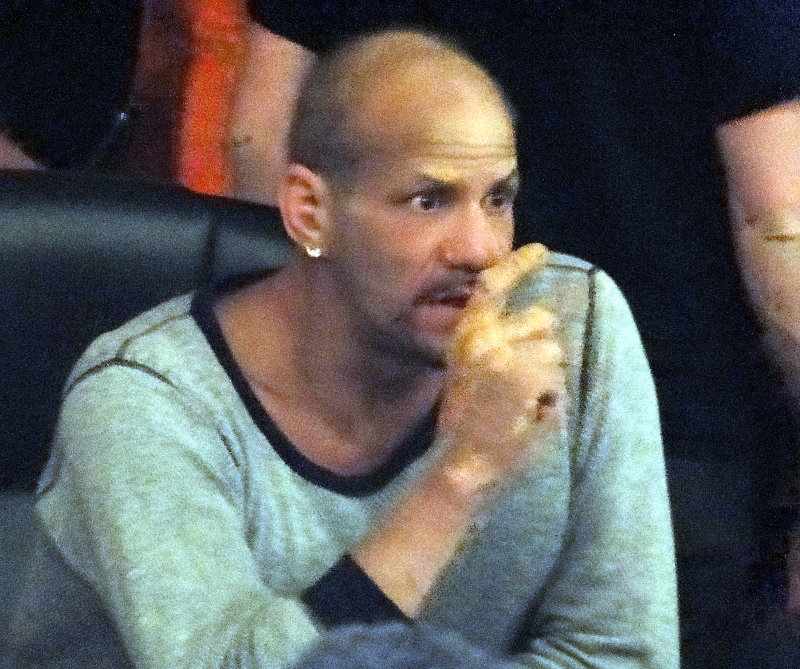
7. **Tommy Morrison (Tommy “The Machine” Gunn)**
In “Rocky V” (1990), the franchise took a different turn, introducing Tommy “The Machine” Gunn, a young, ambitious boxer who becomes Rocky’s protégé. Portrayed by real-life heavyweight boxer Tommy Morrison, Gunn’s character arc explored the seductive dangers of fame and fortune, as he ultimately turns against his mentor, Rocky, for a shot at championship glory. This betrayal culminates in a raw, emotional street fistfight between the two, an unusual but impactful departure from the typical boxing ring showdowns, which Rocky, naturally, wins.
Morrison’s casting brought an unparalleled level of authenticity to the role, given his own formidable career in professional boxing. Born Thomas David Morrison, he was a genuine heavyweight contender, and his on-screen presence crackled with the energy of a true fighter. His most notable real-life achievement in the ring was winning the World Boxing Organization (WBO) title in 1993, a testament to his incredible skill and power. He famously fought boxing legend George Foreman, who, after Morrison’s passing, remarked that “he was just a good guy,” highlighting the respect he commanded within the sport.
While “Rocky V” was one of his only significant acting credits, Morrison’s focus remained predominantly on his actual boxing career. He had a powerful presence that translated well to the screen, embodying the raw ambition and physical prowess required of a championship boxer. Despite his success, Morrison’s career was also marked by personal challenges and comebacks. After a period away from the sport, he made a minor return to boxing in the mid-2000s, before finally retiring in 2008.
Morrison spent most of his retirement years quietly with family, a stark contrast to the high-stakes world of professional fighting and Hollywood. Sadly, Tommy Morrison passed away on September 1, 2013, at the tragically young age of 44, from cardiac arrest, leaving behind a legacy as both a legitimate boxing champion and a memorable, if complicated, antagonist in the “Rocky” universe. His unique blend of real-world experience and cinematic impact ensures he’ll always be remembered as the man who almost eclipsed Rocky Balboa.
The ‘Rocky’ saga, as we know, isn’t just about the main characters. It’s a rich tapestry woven with countless memorable faces, some of whom graced the screen for mere moments but left an indelible mark. These were the animal actors who stole our hearts, the iconic personalities who lent their star power in unforgettable cameos, and the vital behind-the-scenes figures whose authenticity brought the boxing world to life. Their contributions, though sometimes subtle, were absolutely essential in cementing the franchise’s enduring charm and realism.
Now, let’s continue our journey through the annals of ‘Rocky’ history, celebrating seven more unforgettable performers who, sadly, are no longer with us. Each of these individuals brought a unique flavor to the world of Rocky Balboa, solidifying their place in cinematic legend. Their stories remind us that every role, no matter how big or small, plays a crucial part in creating something truly special.

8. **Butkus Stallone (Butkus)**
When we talk about loyalty and companionship in the ‘Rocky’ films, one name immediately springs to mind: Butkus, Rocky Balboa’s beloved bullmastiff. This wasn’t just any canine actor; Butkus Stallone was Sylvester Stallone’s real-life pet, adding an incredible layer of authentic warmth and affection to Rocky’s character. He made his heartwarming debut in the original ‘Rocky’ in 1976 and returned for ‘Rocky II’ in 1979, becoming an instantly recognizable and cherished part of the Balboa family.
Butkus was far more than just a prop; he was a silent, steadfast presence, a confidant to Rocky during his loneliest moments, and a symbol of the simple, unwavering love that grounded the struggling boxer. His gentle demeanor and unwavering loyalty provided a stark contrast to the gritty world of Philadelphia, offering a touch of humanity that resonated deeply with audiences. Indeed, Butkus quickly became a fan favorite, embodying the very spirit of unconditional support.
Born in 1972, Butkus lived a life that intertwined with cinematic history. Sadly, the cinematic world, like life itself, is subject to the passage of time. Butkus passed away in 1981 from a heart attack, leaving behind a legacy that stretched beyond the silver screen. His gentle spirit continues to live on in the hearts of ‘Rocky’ fans, a testament to the profound bond between a man and his dog.
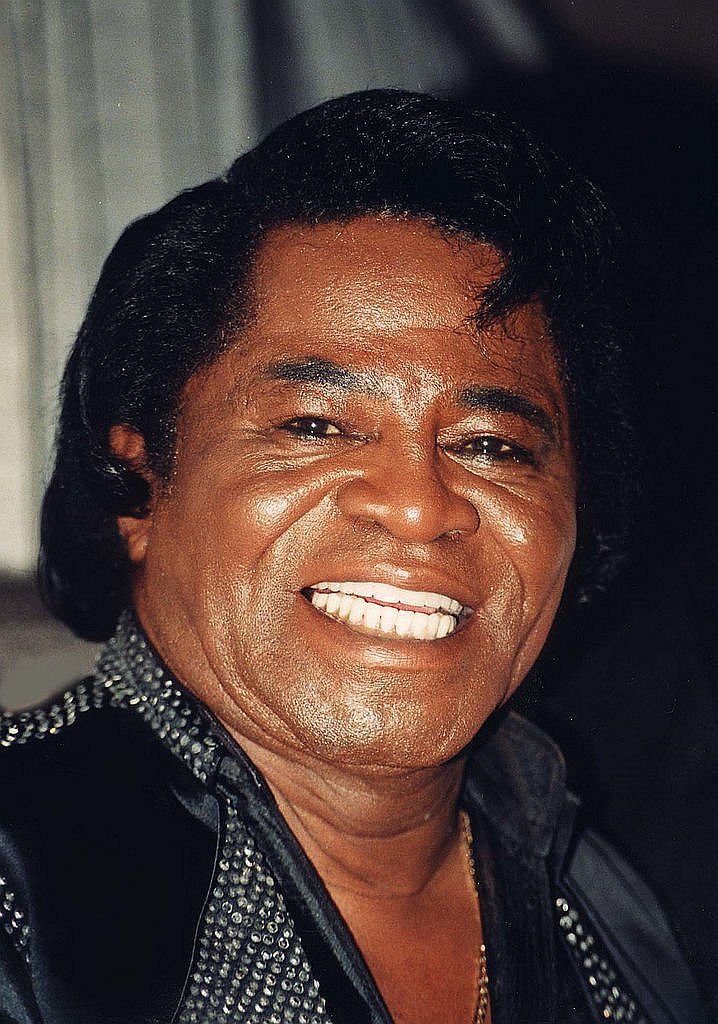
9. **James Brown**
Few musical performances in film are as electrifying and unforgettable as James Brown’s cameo in ‘Rocky IV’ (1985). As the legendary “Godfather of Soul,” Brown graced the screen as himself, delivering a show-stopping rendition of his iconic song “Living in America” just before the epic Apollo Creed vs. Ivan Drago fight. It was a moment of pure, unadulterated spectacle that perfectly encapsulated the high-stakes, globally charged atmosphere of the film.
Brown’s performance was more than just a musical interlude; it was a cultural phenomenon. His explosive energy and unparalleled stage presence elevated the pre-fight pageantry, making it feel like a genuine, larger-than-life international event. The song itself became inextricably linked with the film, its pulsating rhythm and patriotic lyrics serving as a vibrant backdrop to the escalating Cold War tensions portrayed on screen.
Born on May 3, 1933, James Brown’s influence on music is immeasurable, and his appearance in ‘Rocky IV’ only added another iconic moment to his illustrious career. Tragically, the world lost this incomparable talent on December 25, 2006, when he passed away from pneumonia. His electrifying spirit, however, lives on through his music and his unforgettable contribution to the ‘Rocky’ universe, forever cementing his place in both musical and cinematic history.
Read more about: Unlocking Hollywood’s Vault: A Deep Dive into the Most Valuable Movie Memorabilia Ever Sold at Auction

10. **Hulk Hogan (Thunderlips)**
When ‘Rocky III’ exploded onto screens in 1982, it brought with it an unexpected, larger-than-life character who perfectly embodied the era’s flamboyant entertainment: Thunderlips, the wrestling champion, played by none other than the legendary Hulk Hogan. Hogan, whose real name was Terry Bollea, was already a rising star in the wrestling world, and his cinematic debut opposite Sylvester Stallone was a memorable clash of titans that delighted audiences.
The unforgettable charity match between Rocky and Thunderlips was a spectacle of muscle, theatrics, and surprising humor, showcasing Hogan’s incredible charisma and physical prowess. This role allowed Hogan to introduce his signature persona to a massive mainstream audience, blending the worlds of professional wrestling and Hollywood in a way that few had before. It was a truly iconic cameo that left a lasting impression, firmly planting Hogan in the minds of moviegoers.
Beyond the wrestling ring, where he achieved unparalleled fame and was inducted into the WWE Hall of Fame twice (in 2005 and again in 2020 with the nWo), Hogan also dabbled in acting. He starred in films like ‘No Holds Barred’ and even had his own reality TV show, ‘Hogan Knows Best,’ showcasing his versatile appeal. His ‘Rocky III’ appearance, however, remains a definitive highlight of his acting career, a perfect storm of casting that capitalized on his burgeoning celebrity.
It was reported by TMZ that Hogan sadly passed away at the age of 71 from a heart attack at his home in Clearwater, Florida. His death marked the loss of a true pop culture icon, a man who, whether in the wrestling ring or sparring with the Italian Stallion, always knew how to entertain. His legacy as Thunderlips ensures that he will forever be remembered as a pivotal, if brief, adversary in Rocky Balboa’s storied journey.

11. **Joe Frazier**
The ‘Rocky’ franchise has always prided itself on its gritty realism, drawing inspiration from the very real world of boxing. This authenticity was significantly boosted by the inclusion of genuine boxing legends, and one of the most prominent was the heavyweight boxing icon, Joe Frazier. In the original 1976 ‘Rocky,’ Frazier made a powerful cameo appearance as himself, instantly lending an unparalleled level of credibility and star power to the film’s backdrop.
Frazier’s presence was no mere walk-on; it was a nod to the very fabric of boxing history that inspired the movie. As a real-life rival of the legendary Muhammad Ali, Frazier brought with him an aura of legitimate championship pedigree and battle-hardened experience. His brief moments on screen served to ground Rocky’s underdog tale in a tangible, believable reality, reminding audiences of the true giants who dominated the sport.
Born on January 12, 1944, “Smokin’ Joe” Frazier was a formidable force in the ring, holding the undisputed heavyweight championship and engaging in some of the most historic bouts in boxing history. His contribution to ‘Rocky,’ though brief, was immense in establishing the film’s authentic atmosphere. Sadly, the boxing world and film enthusiasts mourned his passing on November 7, 2011, when he died of liver cancer, leaving behind an indelible mark both inside and outside the ring.
Read more about: Electrified Challenges: Why Modern Electric Cars Make Mechanics Hesitate

12. **Al Silvani (Al)**
Behind every great boxer is a dedicated team, and for Rocky Balboa, that often included his cut man, Al. Portrayed by the seasoned Al Silvani, this vital character appeared in ‘Rocky’ (1976), ‘Rocky II’ (1979), and ‘Rocky III’ (1982), consistently providing crucial support and expertise during the intense fight sequences. Silvani brought an air of quiet professionalism to the role, a testament to his own extensive background in the sport.
What made Silvani’s portrayal so authentic was that he wasn’t just an actor playing a part; he was a real-life boxing trainer and cutman. This genuine experience allowed him to embody the role with an undeniable authority, making every moment he was in Rocky’s corner feel incredibly true-to-life. His steady hands and knowing gaze spoke volumes about the critical, often unseen, work that goes into managing a fighter during a grueling bout.
Born on March 26, 1910, Al Silvani’s career in boxing extended far beyond the film set, encompassing decades of dedication to the sport. His ability to seamlessly blend his real-world expertise into his cinematic character significantly enhanced the realism of the ‘Rocky’ films, immersing audiences deeper into the visceral world of professional boxing. Silvani passed away on January 10, 1996, at the age of 85. While the specific cause of his death was not publicly disclosed, his legacy as a true boxing veteran and a beloved film figure endures.


